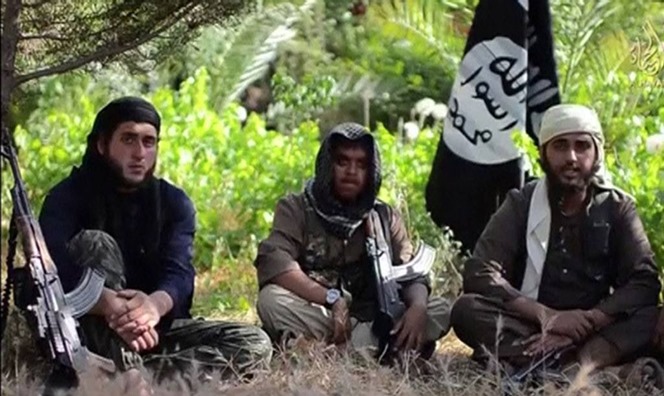Sven Longshanks
Daily Stormer
October 4, 2014

We have been saying this since we started here at the Daily Stormer: non-Whites are susceptible to becoming violent jihadis regardless of what their environment is.
Their religion is an expression of their blood and was spread by violence and force because they are a violent and forceful people.
A new study by the University of London has confirmed this, showing that it is not so much newly arrived immigrants that have sympathies for terrorist groups, as those who have been in a western environment for two or three generations. As soon as they get comfortable and realize that they are not going to be deported instantly for behaving like savages, the call to wage war against the White man becomes too much for them to resist.
This blows a hole in the myth that all these creatures need is educating to prevent them from becoming Jihadis. They have been educated at our expense for three generations now, but still they dream of nothing but rape and pillage.
Young British Muslims whose families have lived in the UK for generations are more at risk of radicalisation than recent migrants to Britain, according to new research which reveals the common characteristics of those most vulnerable to recruitment by terrorists.

Suffering from depression, being financially comfortable and being socially isolated were also common factors amongst those sympathising with terrorism, the University of London study found.
More than 600 Muslim men and women living in Britain aged 18 to 45 were asked detailed questions about their lives and views. Their risk of radicalisation was calculated according to a score of sympathy or condemnation they gave towards 16 terrorist actions, such as the use of suicide bombs to fight injustice.
Those showing the strongest condemnation towards violent protest and terrorism appeared to be frequently in touch with more friends and family. Recent migrants to Britain in poor physical health were also amongst the most likely to be critical.
Kamaldeep Bhui, lead author of the study and professor of cultural psychiatry and epidemiology at Queen Mary University of London, said: “Migrant groups are much stronger in condemning terrorism. I think the most compelling argument for this is that recent migrants are dealing with a hard struggle and they’ve invested in coming here.
“They’ve got adversity to deal with and are not in a position where they can indulge some of the ideas of grievance. Whereas people born and brought up here probably take for granted the security and safety where they live and the education and support.”
Those surveyed were of Muslim heritage living in East London and Bradford. Those in the Bangladeshi community were most likely to condemn acts of terrorism strongly.

